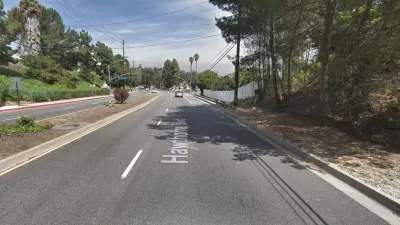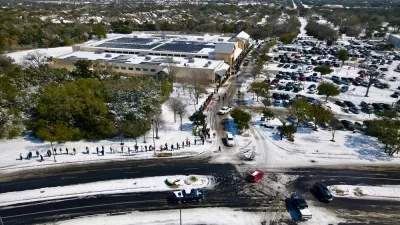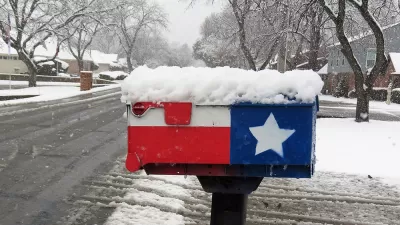Irvin Dawid discovered Planetizen when a classmate in an urban planning lab at San Jose State University shared it with him in 2003. When he left San Jose State that year, he took with him an interest in Planetizen, if not the master's degree in urban & regional planning.
As a long-time environmental activist, he formed the Sustainable Land Use committee for his local Sierra Club chapter and served six years on the Bay Area Air Quality Management District’s Advisory Council from 2002-2008. He maintains his interest in air quality by representing Sierra Club California on the Clean Air Dialogue, a working group of the Calif. Environmental Dialog representing business, regulatory and public health/environmental interests.
Major interests include transportation funding, e.g., gas taxes, vehicle miles traveled (VMT) fees, road tolls and energy subsidies that lead to unlevel playing fields for more sustainable choices.
He hails from Queens (Bayside) and Long Island (Great Neck); received an AAS in Fisheries & Wildlife Technology from SUNY Cobleskill and a B.S. from what is now Excelsior College.
After residing for three years on California’s North Coast, he’s lived on the San Francisco Peninsula since 1983, including 24 years in Palo Alto. Home is now near downtown Burlingame, a short bike-ride to the Caltrain station.
He’s been car-free since driving his 1972 Dodge Tradesman maxi-van, his means to exit Long Island in 1979, to the junkyard in 1988.
Major forms of transportation: A 1991 'citybike' and monthly Caltrain pass, zone 2-2. "It's no LIRR, but it may be the most bike friendly train in America."
Irvin can be reached at [email protected]

Tiger Woods Crash: Blame the Road, Not the Driver, Say Authorities
"Purely an accident" is how the Los Angeles County Sheriff's Department characterized the one-person, single-vehicle rollover crash that severely injured golfing celebrity Tiger Woods on Feb. 23 while driving on the Palos Verdes Peninsula.

A Fourth Coronavirus Surge is Likely
The plunge in daily new coronavirus cases has ceased and may be climbing again, but the news is brighter when looking at the summer. Most of the public health experts interviewed by The New York Times believe a surge is likely but not inevitable.

Lone Star Grid
The Arctic blast that shut down power to millions of Texas households last week has brought renewed attention to the isolated Texas power grid that prevented the operator from importing out-of-state electricity.

Blaming ERCOT
The Electric Reliability Council of Texas (ERCOT), the nonprofit, independent power grid operator for 90 percent of the nation's second-largest state, has become the convenient fall guy for the epic power failure caused by an extreme weather event.

California-Style Rolling Blackouts Come to Texas
As bad as the power outages are in Texas, they would be much worse if the independent energy grid operator hadn't initiated rolling blackouts. In an extensive interview with CBS Austin, Bill Magness, the head of ERCOT, explains what went wrong.

























